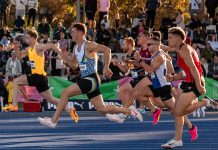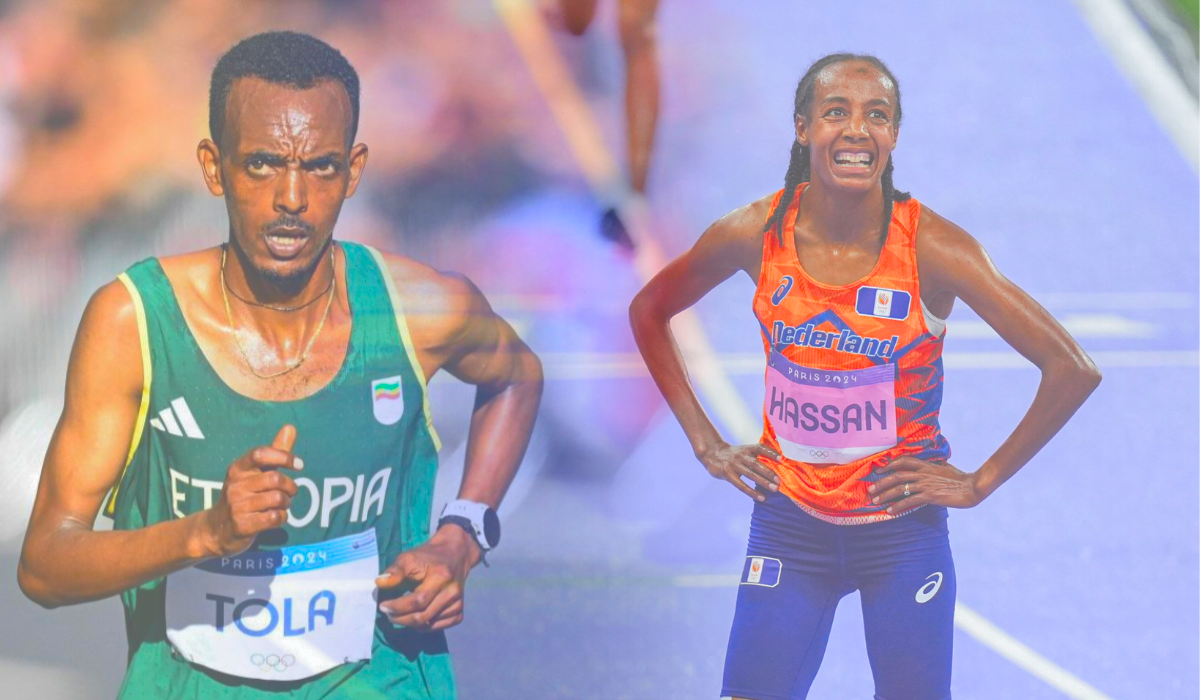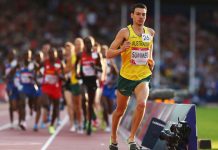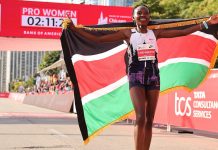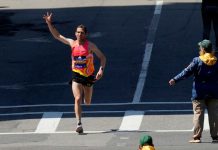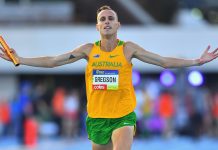If you go by Olympic results, Tamirat Tola and Sifan Hassan are the best male and female marathoners in the world.
This writer is perfectly happy to go by Olympic results. As well as being the Paris gold medallist, Tola was world champion in Eugene in 2022 and won New York last year in a course record. As for Hassan, well . . . she’s Sifan Hassan. That’s credentials sufficient for me.

We’re now in the post-Paris era. Berlin 2024 has come and gone, Chicago is not far away then a few more weeks to New York. For us traditionalists, Fukuoka is set – in stone it seems sometimes – for the first Sunday in December. Oh, and did we mention Valencia.
Already, though, it appears we may have entered a period of transition. Berlin, for example, was good, but not brilliant. Having made her marathon debut earlier in the year with a 2:16:07 in Dubai, Tigist Ketema followed up with a two-minute win in 2:16:48, leading in an Ethiopian women’s 1-2-3.
Milkesa Mengesha made it an Ethiopian double, taking a much closer men’s race in 2:03:17, just five seconds ahead of Kenya’s Cybrian Kotut. Haymanot Alewe (2:03:31) and Stephen Kiprop (2:03:37) repeated this national order in third and fourth places respectively.
Ketema is 26, Mengesha 24. Either or both may go on to greater things. But at the moment, the closest similarity of Ketema to her world record compatriot Tigist Assefa (2:11:53) is a common first name. Likewise, Mengesha is not challenging Tola’s status any time soon even if his winning time was 22 seconds faster than the Olympic champion’s personal best.
Nor was either winner close to setting the third world record in three years in Berlin – Assefa’s world record 2:11:53 last year was preceded by Eliud Kipchoge’s 2:01:09 the previous year – or setting the eleventh world record in the race this century. The men’s lead pack had gone through half-way in 60:57 but could not hold that pace through the second half.
By contemporary Berlin standards, this was no better than good to very good, well short of excellent. Whether Chicago this weekend or the remainder of the year can bring anything significantly faster remains to be seen.

But it is not times alone that suggest the marathon might be in a period of transition. Paris also saw the eclipse of two of the greatest marathoners of all time. Bidding for an unprecedented third consecutive men’s Olympic gold medal, Kipchoge was a ‘dnf’. Kenenisa Bekele did better in his attempt to garner another laurel to his status as distance running’s GOAT, finishing thirty-ninth in 2:12:24. It now seems clear we have seen the best of these two greats.
For those of us who see the greatest marathoners as requiring championship credentials, Tola is an obvious candidate for current number one. But his relatively modest personal best is a negative. Like Abel Kirui, the Berlin 2009 and Daegu 2011 world champion, and Stephen Kiprotich, the London 2012 Olympic and Moscow 2013 champion, he is more readily acclaimed a great championship marathoner.
Perhaps a new claimant to Kipchoge’s crown will emerge over the next couple of years. It could, of course, been Kelvin Kiptum, who had taken the world record off his compatriot but was taken from us before he could supplement super-fast times with championship gold. It could be Tola, though the Olympic champion is already 33 years old as is Olympic bronze medallist Benson Kipruto. New contenders will doubtless emerge.
Paris presented three contenders for women’s number one status. Hassan, with her minor Zatopek treble – bronze, bronze, gold in the 5000, 10,000 and marathon against Zatopek’s triple gold, Assefa and Kenya’s great racer at all distances, Hellen Obiri.

Assefa is the world record holder with that other-worldly 2:11:53, Hassan’s 2:13:44 win in Chicago last year makes her the second-fastest ever, Obiri, like Hassan, is competitive over any distance she races on track, road, or cross-country.
Speaking world records, Paris 24 saw a continuation of the trend of world record holder disappointment in championship marathons. Assefa finished second, which could hardly be termed a failure but the one and only reigning world record holder to win the women’s Olympic marathon is Joan Benoit, whose 2:22:53 in Boston in 1983 was regarded as the ‘world best’ when she won the 1984 Olympic marathon. The previous and current world record holders Brigid Kosgei in Tokyo 2020 (actually Sapporo 2021!) and Assefa have taken the silver medal.
Kipchoge, in Tokyo/Sapporo, is the only male world record holder to have won the Olympic marathon – this century, at any rate. Next best effort is Paul Tergat’s tenth behind Italy’s Stefano Baldini in Athens in 2004. At least that was better than Haile Gebrselassie, Patrick Makau and Dennis Kimetto, three world record holders in recent times who never ran an Olympic marathon.
Something to divert us, perhaps, as we await the next pre-eminent marathoners.



